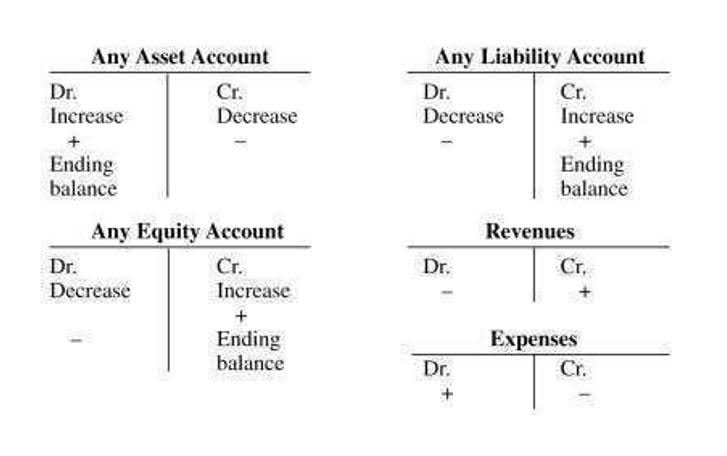
Accurate accounting ensures quick access to verified information, which is essential for meeting regulatory demands. Many times, construction businesses are juggling many projects in various locations. Companies with operations in many states have extra expenses, such as taxes. The software offers features like job costing, progress invoicing, and specialized reporting that cater specifically to the construction industry. For contractors managing several projects simultaneously, tracking costs and ensuring profitability for each one can be overwhelming.
Tip #8: Automate your construction bookkeeping with accounting software

Construction companies often employ a mix of hourly and salaried workers, making payroll management complex. Classify your employees by compensation structure and track their hours diligently. Make sure that all payments meet prevailing wage and certified payroll requirements to stay compliant with labor regulations. A lot of contractors start out by doing things themselves, but as they grow, it can be hard for them to keep up with the paperwork that comes with using complicated accounting systems.
Construction Bookkeeping: 8 Top Tips for Contractors

This means that you recognize income in the accounting construction bookkeeping period when it’s collected, and not at the time of sale. With the completed contract method, you recognize revenue only after completing a project. Construction companies often use this method for short-term contracts, especially those where contract costs can be hard to estimate. You could have one account reserved for paying expenses, another one for managing payroll, and a third one for receiving payments for clients. If you manage many projects at once, strong retainage management is essential. It will ensure you have capital in the event that a customer withholds money owed.
Percentage of Completion Accounting

Sage 300 Construction and Real Estate (CRE) is a comprehensive accounting and project management solution built for large contractors, developers, and property managers. It provides end-to-end financial visibility, risk management, and project tracking. Modernize your workforce management process and add to your existing tech stack with our platform that aims to be a solution to managing construction personnel.
How to Choose the Right Accounting Software
These situations can make it difficult to decide when revenues should be recognized. When you’re in the process of selecting a bookkeeping service provider, it’s crucial to evaluate a few key factors. First, take into account their expertise and familiarity with the construction industry, as this can make a significant difference in the quality of service they provide. Next, assess their reputation by looking into client testimonials, reviews, or case studies, which can give you insight into their credibility and reliability.

Project-based vs. product or service-based
- These are the professionals that take care of bookkeeping and accounting functions for businesses, which gives such organizations time to concentrate on their core activities.
- Better bookkeeping equals a better construction company which means more money in your pocket.
- Accurate bookkeeping allows you to see where your money is going, identify potential financial issues early, and plan for the future with confidence.
- Accurate construction accounting is essential to managing resources and stabilizing the construction firm.
- For one, payroll for construction is more complex, and involves much more than agreeing on a flat rate for every project.
Unfortunately, it’s not as simple as agreeing on compensation with a worker and paying them the same rate per project. The more projects your construction company manages and the more workers you contract, the more important it is to have your accounts in order. Ensure you’re consistent, entering transactions promptly so you have as much real-time data as possible. By automating receipt management and expense tracking, Shoeboxed saves construction bookkeepers significant time. This allows them to focus on more strategic tasks such as financial analysis and planning. With so many variables and every project being different, hiring a professional with industry experience for your bookkeeping and accounting services can significantly relieve many small business owners.
A Guide to Construction Bookkeeping (for Non-Accountants)
It’s an excellent choice for builders who frequently bid on projects, manage multiple subcontractors, and need clear financial insights to maintain profitability. Foundation Software is a construction-specific accounting platform that handles Accounting Periods and Methods complex payroll, job costing, and financial reporting. Unlike general accounting tools, it’s designed to support contractors working across multiple states, unions, trades, and jurisdictions. It is a way to forecast a project’s costs by estimating things such as contractors, materials and supplies, and overhead. It is why it is best to use software suited to job costing for construction projects. When your payroll and invoicing systems are linked to your accounting software, the likelihood of errors is reduced, and your workflow becomes more efficient.
- Construction bookkeeping helps ensure that all costs, from labor to materials, are accounted for, making it possible to track profitability, manage cash flow, and make informed decisions.
- This can make it difficult to track revenue and costs on a single project, let alone many.
- This ensures payroll receives accurate data for the time workers spend on-site, as well as time spent traveling.
- For construction companies, adherence to industry regulations and taxes is vital to sidestep penalties and uphold a favorable reputation.
- Whether you’re an owner of a commercial or industrial cleaning company, or running a residential business, it’s only natural that you’re always on the lookout for new ways to…
- Whichever method you choose, have the systems and processes set up to produce the required data.
This means tracking business expenses in each category to clear a reasonable profit margin. On average, it takes three to five years for a construction Law Firm Accounts Receivable Management company to become profitable. High startup costs, fluctuating material prices, and delayed payments create significant financial challenges in the early years.
